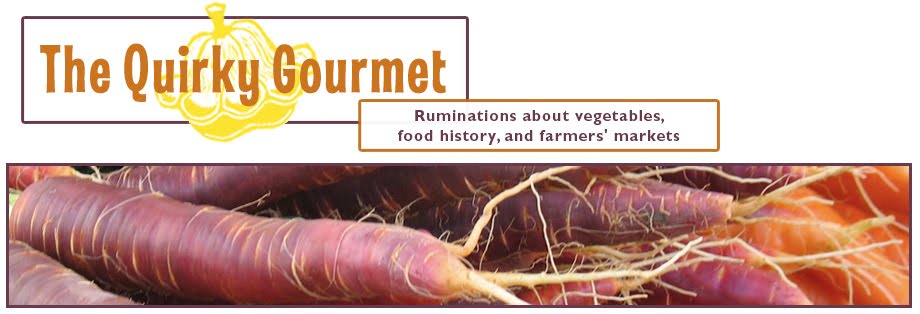
The menu at my market concession stand (and at my shop)is centered around a mix of seasonal vegetables cooked on the grill. During past years we've used mostly local produce in the summer, when it's abundant, and industrial ingredients from California or Mexico in the winter.
This winter we've been doing it differently. It all started one day in late August when I saw the first winter squash of the season, a little green kuri squash, and I couldn't help buying it. I'd intended it for personal use but it got mixed up with the veggies for the business, and my employee prepped it. She left the skin on and scooped out the seeds. Then she cut it into chunks that would fit in our industrial food processor and sliced it really thinly that way.
I'd always figured that winter produce would take too long to prep, and wouldn't fully cook on the grill. That first squash shattered my preconceptions, and we've been building on in ever since. Now we're using beets--red, gold, and chiogga--and all kinds of winter squash. This week we'll add some carrots.
The response has been exciting. People tell me they like this mix even more than the flamboyant summer offerings. The colors are gorgeous, even more eye catching than the autumn patty pans, which have lots of green and yellow on the outside but are mostly white on the inside.
I can't believe I've never done this before.
